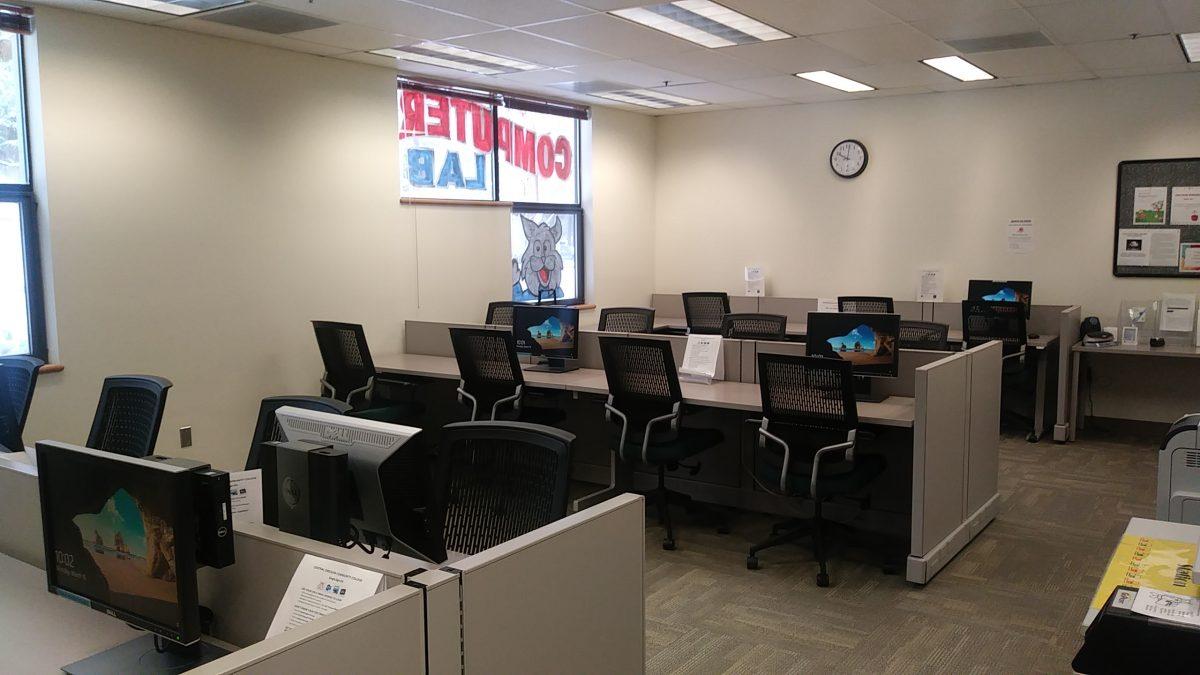Luke Reynolds/The Broadside
While Central Oregon Community College students enjoy a second week of spring break, instructors are hard at work transitioning their classes online.
Due to the spread of COVID-19, COCC has recently announced that classes will be held remotely until April 28. This change of pace has inconvenienced both students and faculty for spring term.
“I think it’s challenging to be a student right now. Knowing that one is embarking on a new adventure like remote learning is one thing, but a whole other is dealing with an altered day to day that may include significant challenges, such as lost wages, lack of childcare and heightened stress” said Tony Russell, who is an instructor and chair of the humanities department.
Russell says that he will have to alter a few of his courses with online in mind. For example, group presentations may not be feasible in his graphic novels course due to the technological tools and reliability of internet access for students. Despite this, Russell has experience teaching online and plans to use strategies such as wikis, discussion boards and recording audio comments.
“I will need to make adaptations, but I will do so with course outcomes in mind. That’s what’s important. I may not teach the way I planned, but I will make sure that students get the experiences they need to meet the outcomes,” Russell said.
While he acknowledges the changes may not be the most fun, he wants to make sure students don’t have a watered-down version of a course.
For instructors who are less experienced teaching online, COCC has offered a few resources to make the transition easier. This includes worksheets instructors can fill out to plan their classes and a timeline to set them up on Blackboard. Information on how to take attendance virtually and using the application Zoom for office hours is included as well. Instructors are collaborating with each other on how to tackle these new challenges.
“The Allied Health team has been wonderful. Those with more experience with online teaching have offered their services to help others new to the experience,” said Deborah Malone, an instructor and chair of the Allied Health department.
Of course, some classes have more specific needs than others.
“Labs will run in various ways, depending on the subject and the instructor. We have some faculty, for instance in field biology or geology, who will video field trip experiences and share those with students,” said Carol Higginbotham, an instructor and chair of the science department.
Classes that typically have a hands-on approach, such as anatomy and chemistry, will also be held online. Higginbotham said one of the main goals is for students to learn concepts and connect them to science and she believes this can be achieved remotely—albeit with some challenges.
“We have similar frustrations to students. We need groceries, we want to go recreate, and we are limited. As far as work, our frustrations seem to swirl around needing to change course designs fast, and adopt new technology that we maybe weren’t interested in learning before,” Higginbotham said.
However, Higginbotham wanted to make clear these are small things in the long run.
“Faculty, just like students, are first of all concerned about the safety and health of the people that are in their lives, and in their community.”














